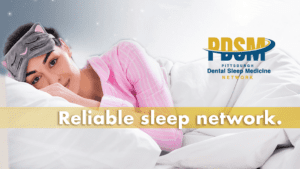Attention: Pittsburgh Dental Sleep Medicine no longer offers jaw joint treatments (TMD). We only offer sleep apnea oral appliances. Click HERE for our trusted providers.
Need a CPAP Alternative? Call: 724-935-6670
OFFICE PHONE: 724-935-6670
What Sleep Apnea Treatment to Try When CPAP Just Doesn’t Work For You

When it comes to treatment options for sleep apnea, Continuous Positive Airway Pressure, or CPAP, is often times the first option presented to patients. CPAP functions by use of a mask connected to tubes that send pressurized air through the nasal passages and/or mouth to the patient. This treatment creates an influx of air that opens the collapsed airway, and allows for unimpeded breathing. Unfortunately, CPAP is also the sleep apnea option that is often least tolerated by patients. When the machine is used properly and consistently, it works very well. The problem is, that wearing a mask to sleep every night is a daunting task, and more often than not, patients fail to comply with the directives and fail to wear the mask to sleep each night. The mask also causes other problems, such as trouble falling asleep, discomfort, inability to sleep in certain positions, leaky masks, dry mouth/nose, and other issues.
So what should you do if CPAP isn’t for you? Oral appliance therapy is an excellent option. Instead of bulky tubes, machine noise, and claustrophobia inducing masks, oral appliances look like a retainer and are simply placed in the mouth during sleep.
Oral appliances, like CPAP masks, come in a variety of designs to create options for patients. The oral appliance is placed in the mouth much like an orthodontic retainer or an athletic mouth guard. It is utilized during sleep to prevent the collapse of the tongue and soft tissues in the back of the throat so that the breathing passages stay open during sleep. As you can tell by the image above, oral appliances are much less cumbersome than CPAP masks. This alleviates many of the issues associated with CPAP, and makes oral appliances a more viable option for patients who can’t tolerate CPAP.
At Pittsburgh Dental Sleep Medicine, we help select the best oral appliance for you with our selection of oral appliance options. We then fit the appliance to you by using information about your tooth alignment, jaw joint, and bite to make a custom oral appliance that fits your unique oral cavity. You can read more about our process and oral appliance therapy on the Pittsburgh Dental Sleep Medicine webpage: Oral Appliance Therapy – Overview.
Regardless of the pros and cons of using either CPAP or oral appliance therapy as treatment options for sleep apnea, the important decision is deciding to treat the problem. Sleep apnea gone untreated leads to increase risk of other dire consequences like heart attack, stroke, high blood pressure, diabetes and depression, to name a few. If you haven’t been diagnosed with sleep apnea but suspect you might suffer from it, see your family physician and voice your concerns. Your physician will then provide a formal diagnosis based on a medical sleep study. After that, make an appointment with Pittsburgh Dental Sleep Medicine if you are located in Southwest PA by calling 724.935.6670, or find a dental sleep specialist near you by contacting the American Academy of Dental Sleep Medicine (www.aadsm.org, click on “Find a Dentist”). The important part is getting your sleep apnea treated. So find a sleep apnea treatment that works for you and start feeling well rested. Get on the road to healthiness and happiness today.
Share On Social Media
Quick Links
All Rights Reserved | Pittsburgh Dental Sleep Medicine

